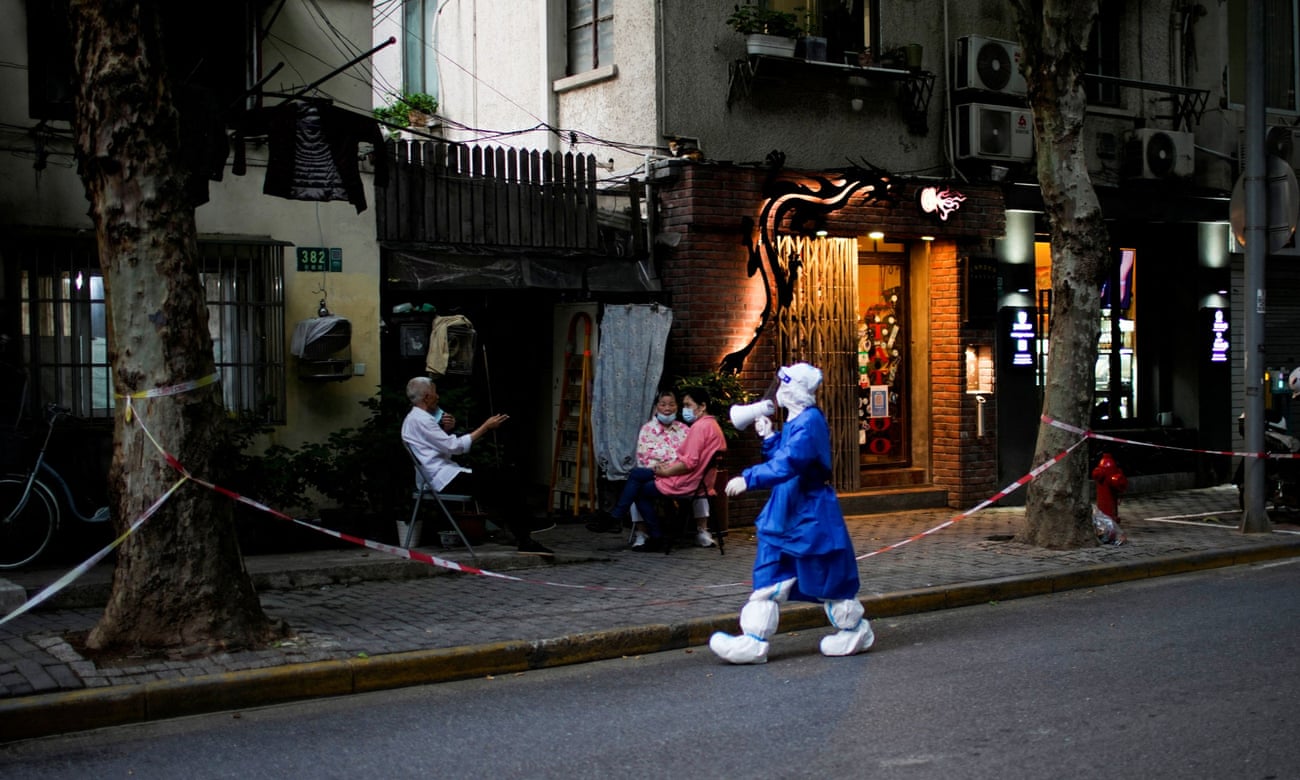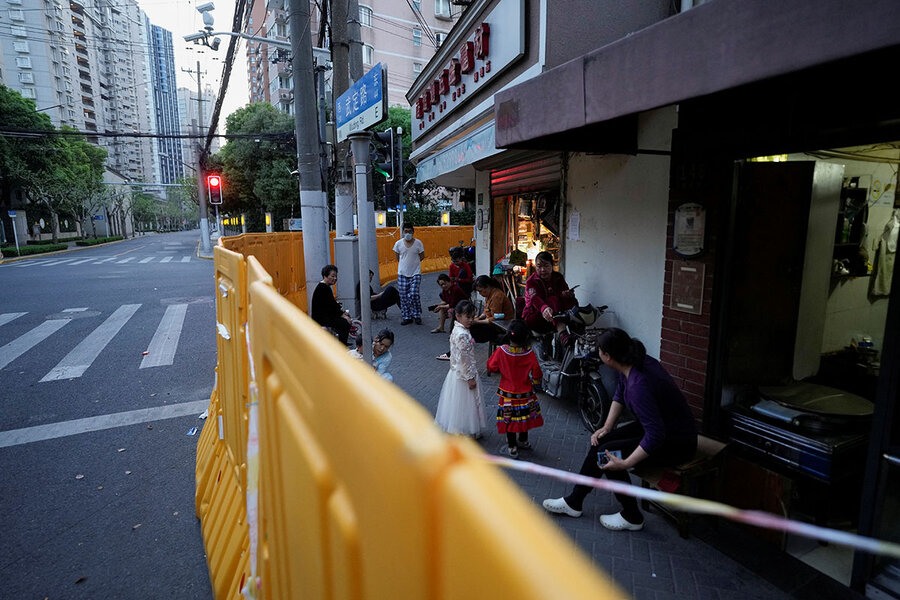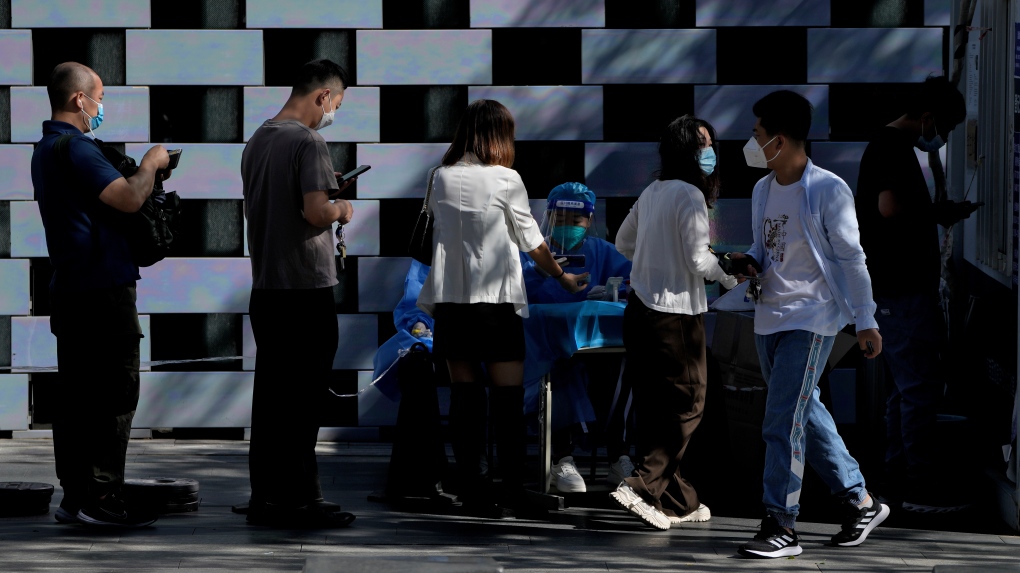The Success of China's "Zero-COVID" Policy
"We've been locked up in our home for more than 40 days. We are short of everything, especially food.""There are so many difficulties, I feel like crying just by mentioning them.""We only eat naan and congee [flatbread and porridge]. There is no milk or vegetables."Gulnazar, resident of Ili, Xinjiang region, China"All supermarkets and small stores where you can buy groceries are closed.""The online shopping platforms designated by the government are also having shortages and you cannot buy stuff or receive deliveries."Guiyang resident posted on Weibo
 |
| Millions of migrant workers in Shanghai were unable to earn any income during the months-lockdown as China pursued a zero-Covid policy. Photograph: Aly Song/Reuters |
China, the very place where the pandemic raised its head, remains fixated on a "zero COVID" policy, no exceptions and no complaints permitted. But there have been and continue to be plaintive messages posted on social media from people desperate for food and medical care. Tens of millions of people are once again under weeks-long coronavirus lockdowns. And they're there, locked into a now-too-familiar scenario of SARS-CoV-2 punishment they can do nothing about, while a meeting of the Communist party is set to begin.
There will be no relief for these people hit with this misfortune until that key meeting has been concluded -- if then. By orders of Communist Party leader and President of the country, Xi Jinping; "zero COVID" must be maintained and protocols upholding that goal are not to be questioned. Localized outbreaks are kept from spreading through these lockdowns at a tremendous economic and psychological toll on a long-suffering population.
This is a momentous occasion for President XI as he prepares to launch a third five-year term in office in October, irrespective of the precedent of stepping down following two terms in executive office. So at least through that meeting, the 20th National Chinese Communist Party Congress is over, lockdowns are to continue. Some faint hope is offered that post-meeting some of the sweeping COVID controls may be rescinded.
Ili prefecture in northwestern Xinjiang region is where some of the most serious reports are emanating from. One woman who gives only one name, explains that local authorities locked their apartment door from the outside, opening it only when medical workers appear to perform coronavirus tests. Neighbourhood committees in some cities deliver free groceries to those in lockdown. But this woman says the neighbourhood committee where she is locked down offers only to sell food at higher-than-normal prices and even that not frequently enough.
 |
| Residents stand behind barricades in a sealed-off portion of Shanghai Aly Song/Reuters |
Online postings in Ili speak of an inability to take their sick children to hospital. Some post of the death of elderly family members during lockdown. Widely reported on Chinese social media leading the Ili government to apologize for problems in the lockdown response while also rejecting reports as mere rumours. Four people were punished with five to ten days' detention each for "spreading rumours" about the lockdown. Residents are warned to watch their words.
The official case count in the entire population would cause joy in any other country, but not China. A mere 949 locally transmitted cases were reported nationwide on Sunday, within an immense population of 1.4 billion people. Residents in lockdown are unable to work to sustain themselves through a regular income, ending up surviving on fast-disappearing savings. President Xi projects an image of himself as a populist leader who has declared elimination of poverty central to his administration.
In Guiyang where a lockdown in parts of the city commenced on September 5, a wildlife park published a public plea for food to keep its tigers, pandas and other wild animals from starvation. In Lhasa, the capital of occupied Tibet, parts of the city began locking down a month ago. Shanghai's earlier months-long lockdown echoes what is occurring once again in parts of China. In Shanghai, supply chains were disrupted in the wealthy city, leaving residents begging for food, pleading for ill family members to be permitted to go to hospital.
Beijing maintains China is unable to halt lockdowns since a substantial number of the population, in particular the elderly who were not given priority status, remain unvaccinated. The country's refusal to import the most effective foreign vaccines against coronavirus, relying totally on domestic vaccines that provide much less immunity explains in part its predicament. Censorship and detentions aid the government in suppressing domestic criticism of its "zero COVID" policy.
 |
| Residents line up to register to get their routine COVID-19 throat swabs at a coronavirus testing site in Beijing, Monday, Sept. 5, 2022. (AP Photo/Andy Wong) |
Labels: China, COVID, Lockdowns, Zero-COVID

0 Comments:
Post a Comment
<< Home